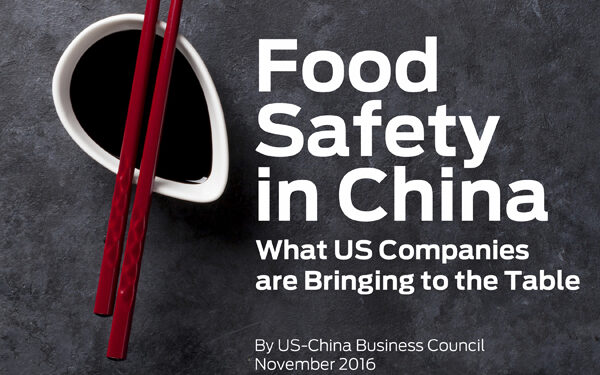By Zoe Sophos
Despite the increase in regulatory attention after several recent high-profile food safety scandals, China’s food industry is continually challenged to keep food safe. Vague policy directives and lack of interagency coordination lead to confusion about what is expected of stakeholders. The prevalence of small players creates a diverse, disjointed agricultural supply chain that is difficult to oversee—creating compliance concerns for multinational companies in the food and beverage space.
At the same time, promoting and enforcing shared responsibility across the supply chain to keep food safe is not a broadly entrenched value in China. And, inflated complaints by professional consumers—individuals incentivized by financial gain to report food safety violations—are a step toward a more transparent system, but distract from tackling core food safety reforms.
All companies involved in food and beverage production aim to deliver safe products to customers, and every link in the food value chain provides opportunities to strengthen food safety and food security. From farm to table, from seed to storage, and from the production line to the test lab, companies are constantly working to guarantee that food is safely produced, processed, and delivered to the public. By using proven technologies, global standards, innovative methods, and collaborative practices throughout the supply chain, US companies operating in China are helping contribute to a more plentiful supply of safer food.
In 2016, USCBC conducted more than 40 interviews in China and the United States with its member companies, Chinese and US government officials, and other stakeholders in China’s food industry about approaches to mitigating food safety risks, best practices for engaging with the public and private sectors, and the surrounding policy and regulatory environment. The interviews included professionals in farming, processing, packaging, retail, foodservice, and ecommerce industries.
Through this research, USCBC found that robust transparency in policy creation and implementation—paired with even enforcement—is critical for companies to efficiently operate and successfully provide safe food. A transparent, healthy regulatory approach leads to policies that are balanced, implementable, and effectively achieve food safety outcomes that help create a greater supply of safe food.
USCBC also found that US companies are responding to food safety challenges in China in ways that are collaborative and innovative, and help promote food security across the whole supply chain. For example, US companies in the agriculture and food space provide significant, ongoing training on food safety considerations for their employees, their suppliers, and Chinese regulators at the provincial and local levels. They also bring high, global standards and a comprehensive perspective on what it takes to keep food safe. Not only are they able to improve best practices for food safety, but US firms can be effective partners with regulators and lend their unique expertise in collaborative ways. Companies operating in China have tailored strategies for engaging with regulators on critical food safety issues, enabling them to effectively respond to food safety incidents.
In addition, US companies work closely with their suppliers—often Chinese firms—to share best practices and modern technology. For example, they may help suppliers establish foreign object control programs that use x-ray and de-shelling technology to prevent contaminants such as nutshells from ending up in finished food products. A meat products company pre-approves antibiotics that its suppliers use on their farms, helping moderate notoriously heavy antibiotics usage by small farms in China. One company reported working to train the truck driving companies that transport its product on best practices for cold storage management. Another company helps educate farmers on proper disposal of pesticide packaging so runoff doesn’t end up in rivers and water supplies. By employing international best practices in these instances and others, companies are able to reduce the amount of food lost in the supply chain due to unsafe practices, thus making sure more food is available to consumers.
Food safety in China has made tremendous progress. Regulatory efforts to encourage the production and sale of safe food; developments in testing, manufacturing, and cold chain technology; growth of the food industry as a whole; and enhanced consumer awareness of food safety all played a role in that progress. As China’s food industry continues to develop, the ways in which regulatory transparency, interagency coordination, disjointed supply chains, and overall culture are addressed will determine the safety and security of China’s food supply.
For the complete results of USCBC’s research, please see our report on Food Safety in China.
About the author: Zoe Sophos was a business advisory services manager for the US-China Business Council. USCBC is a private, nonpartisan, nonprofit organization of more than 200 American companies that do business with China. Founded in 1973, USCBC has provided unmatched information, advisory, advocacy, and program services to its membership for more than four decades. Through its offices in Washington, DC, Beijing, and Shanghai, USCBC is uniquely positioned to serve its members’ interests in the United States and China.






























